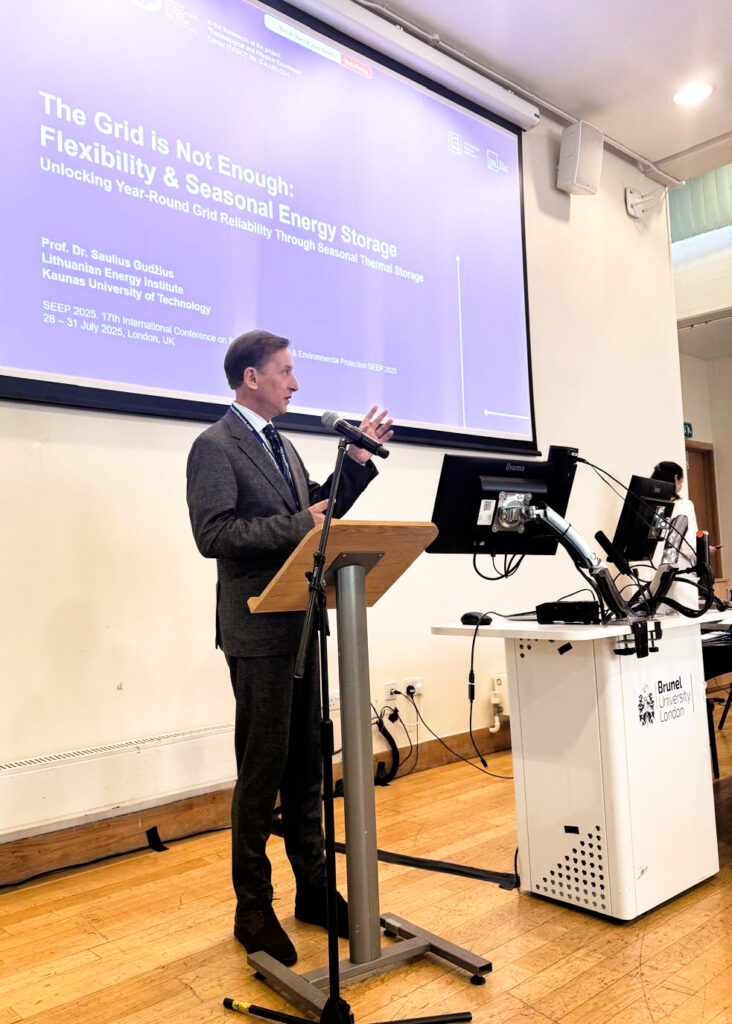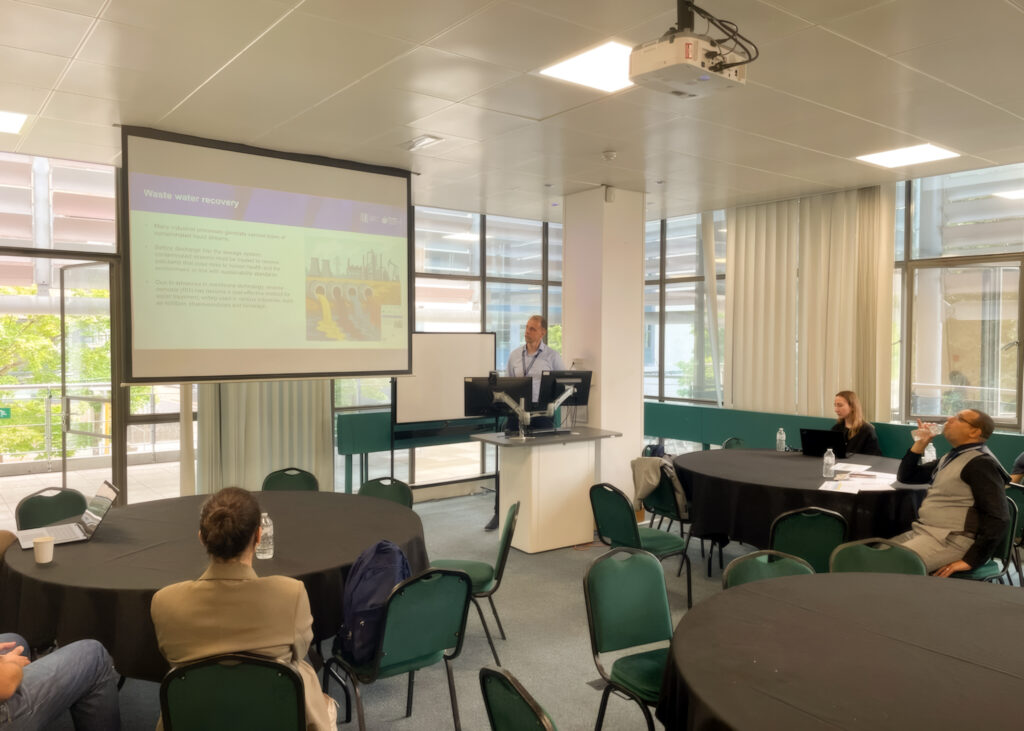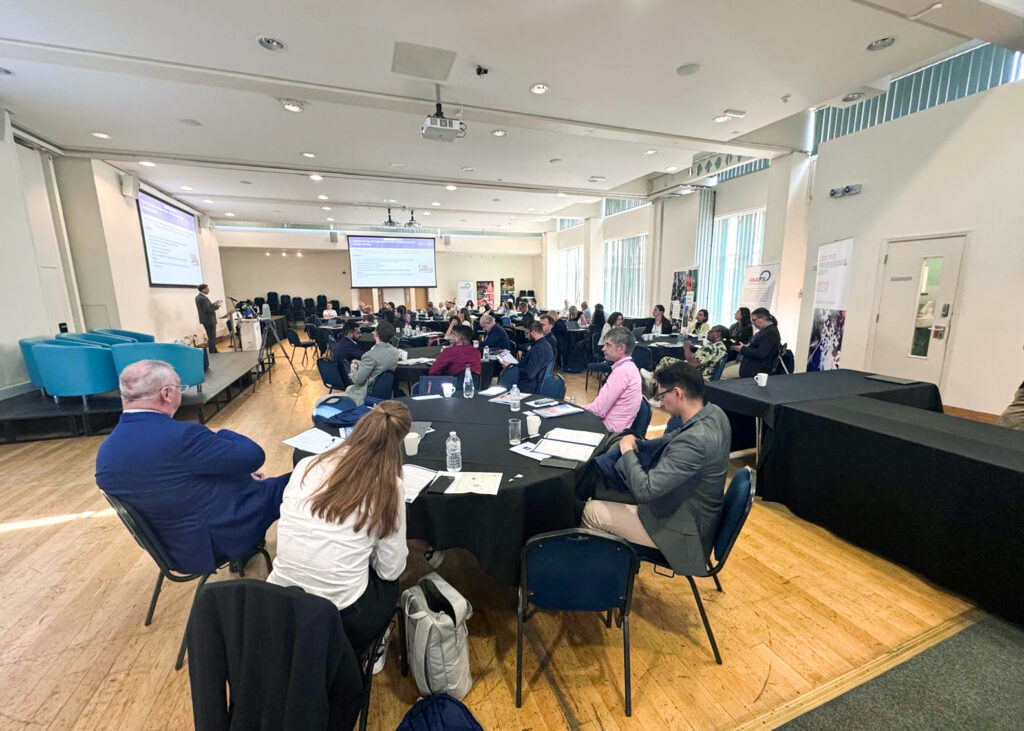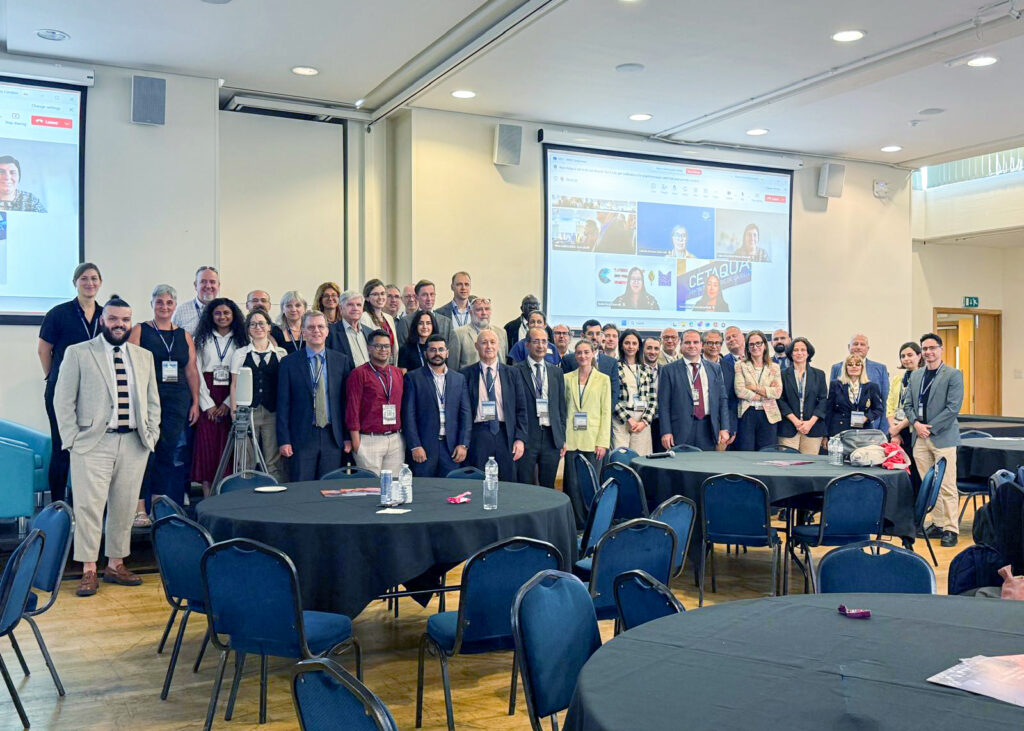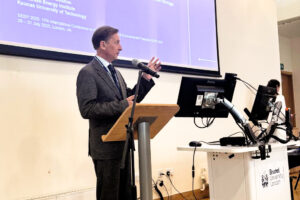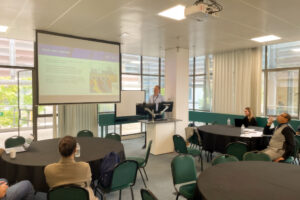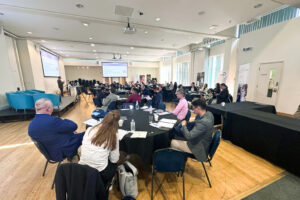From July 28 to 31, Professor Dr. Saulius Gudžius, Director of the Lithuanian Energy Institute (LEI), and Dr. Robertas Poškas, Chief Researcher at the Laboratory of Nuclear Engineering Problems, participated in the 17th International Conference on Sustainable Energy and Environmental Protection (SEEP 2025), held at Brunel University London.
The Importance of Energy Flexibility
Professor Dr. Saulius Gudžius was one of the keynote speakers at the conference. In his presentation, “The Grid Is Not Enough: Flexibility & Seasonal Energy Storage”, he discussed Lithuania’s goal of ensuring energy independence, the need to increase system flexibility, and the role of seasonal thermal energy storage technologies. He emphasized that Lithuania has made a firm commitment to move away from dependence on Russian energy resources by expanding local renewable electricity production. However, ensuring system reliability requires a complex set of measures – smart regulation, investment incentives, and enhanced infrastructure flexibility.
Professor S. Gudžius highlighted the crucial importance of developing and implementing advanced electricity and thermal energy storage technologies, which ensure system flexibility and help manage fluctuations in renewable energy sources.
While the number of solar and wind power plants is rapidly growing in Lithuania, and the amount of energy produced by them is increasing, these sources are inherently intermittent and not always available. Therefore, it is essential to develop not only short-term but especially seasonal energy storage solutions. Such solutions allow for storing surplus energy when it is produced and using it when production is low, thereby improving grid reliability and reducing dependency on imported energy resources. Achieving Lithuania’s energy independence requires consistent development of energy infrastructure, the implementation of modern regulatory mechanisms, and the promotion of investments in innovative technologies and solutions that help balance energy demand and supply in the long term.
Recovery of Wastewater Streams in Industry
On July 28, during the iWAYS symposium at the conference, LEI researcher Dr. Robertas Poškas delivered a presentation titled “Acidic Condensate Treatment Using a Reverse Osmosis Pilot Unit”, which explored the treatment of industrial acidic condensate.
This research is part of the EU’s Horizon 2020 project iWAYS, which focuses on sustainable resource recovery solutions in industry. The study analyzed ways to recover water, heat, and materials from industrial streams. Simulated industrial waste streams containing aggressive chemical compounds – which pose major challenges to heat exchangers by causing corrosion, reducing their lifespan, and leading to costly downtimes – were examined. The research aimed to identify materials that withstand such conditions best and to determine how recovered heat could be efficiently reused.
According to Dr. R. Poškas, the goal was not only to recover heat from acidic waste streams but also to effectively treat the resulting condensate so it could be reused in industrial processes. The polluted condensate was purified using a prototype filtration system with a reverse osmosis filter.
The results showed that the prototype filtration system significantly reduced ion concentrations and metal content in the treated water, although it only slightly affected the pH – the purified water remained mildly acidic. This indicates that the technology is effective in removing impurities from industrial condensate.
“The possibility to reuse treated water is becoming an increasingly important direction for sustainability – especially in Southern European countries, where water scarcity is becoming more acute,” the researcher emphasized.
International Dialogue
Held for the 17th time, this international conference brought together academics, industry representatives, and policymakers from around the world. It provided a platform to discuss the latest trends and innovations in sustainable energy and environmental protection, promote international cooperation, and exchange knowledge to address global challenges.
Dr. R. Poškas noted that the conference was a great opportunity to meet scientists from other countries and discuss prospects for cooperation. Moreover, participation in such high-level events enhances the Institute’s visibility, helps build new connections, and creates opportunities to publish research results in international scientific journals. This year, LEI also contributed to the organization of the conference.






